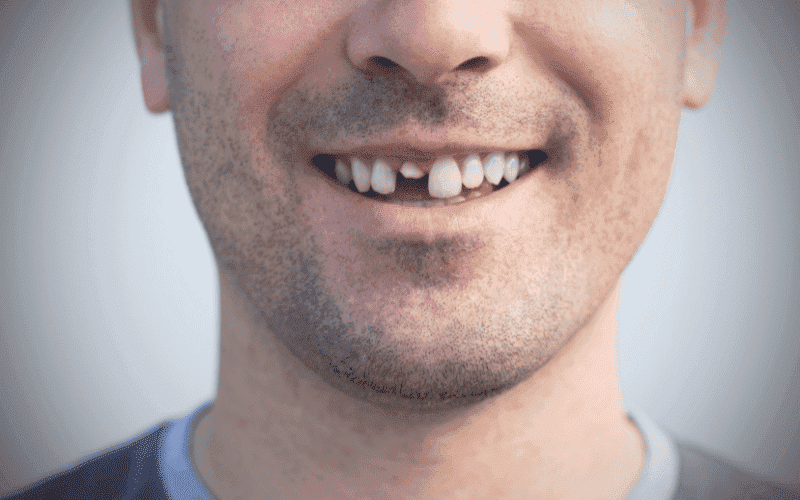5813 Centre Ave, Pittsburgh, PA 15206

Traveling is an exciting adventure. Whether you’re exploring a new country or relaxing at a beach resort, you want everything to go smoothly. However, emergencies can happen anywhere, including dental emergencies. Knowing how to handle a dental emergency while away from home is crucial for staying comfortable and ensuring your trip is memorable for the right reasons. Here’s a guide to being prepared for any dental issues that might arise while traveling.
Dental Emergencies: What They Are and Why They Matter
Anything from a sudden toothache to a knocked-out tooth can be considered a dental emergency. These situations are often painful and require immediate attention. While on vacation, finding a dentist quickly can be challenging. That’s why it’s important to be prepared before you even leave home.
Common Types of Dental Emergencies:
- Toothache: A persistent toothache can ruin your trip. It may indicate an infection or a cavity that needs urgent care.
- Broken Tooth: Whether from biting into something hard or an accident, a broken tooth can be painful and might require emergency treatment.
- Lost Filling or Crown: A filling or crown loss might cause discomfort by exposing the tooth’s sensitive area.
- Knocked-Out Tooth: If a tooth gets knocked out, immediate action is needed to save it.
These situations might seem overwhelming, but knowing how to handle them can prevent your trip from being spoiled.
Before You Go: Preparation is Key
Preparation can make a world of difference if you face a dental emergency while traveling. Here’s what you can do before leaving for your trip:
- Visit Your Dentist:
Schedule a dental check-up before your trip. Take care of any possible problems, including cavities or loose crowns. This reduces the chance of a dental emergency occurring while you’re away.
- Pack a Dental Emergency Kit:
Create a small kit to carry with you. Include essentials like:
- Pain relievers (e.g., ibuprofen or acetaminophen)
- Dental floss
- Temporary dental cement (to fix a lost filling or crown temporarily)
- Cotton balls and gauze
- A little box to hold an extracted tooth.
This kit won’t replace professional care, but it can help manage discomfort until you reach a dentist.
- Know Your Insurance Coverage:
Check if your dental insurance covers emergencies abroad. If not, think about getting dental coverage while buying travel insurance. Being aware of your coverage can help you avoid unforeseen costs.
- Research Local Dentists:
Before your trip, research reputable dentists in the area where you’ll be staying. Write down their contact information, including the clinic’s address and phone number. This saves time if an emergency occurs.
- Understand Local Emergency Procedures:
Familiarize yourself with the local emergency procedures for the country or region you’re visiting. In some places, emergency dental care might be offered at hospitals, while in others, you might need to visit a specialized clinic. Knowing this information ahead of time can be a lifesaver in a dental emergency.
- Consider Language Barriers:
If you’re traveling to a country where you don’t speak the language, consider downloading translation apps that can help you communicate in a dental emergency. It’s also helpful to learn a few key phrases related to dental care in the local language, such as “I need a dentist” or “I have a toothache.”
During Your Trip: Handling a Dental Emergency
If you experience a dental emergency while traveling, stay calm and follow these steps:
- Assess the Situation:
Determine the severity of the issue. Is it something you can manage with your dental emergency kit, or do you need immediate professional help? This decision will guide your next steps.
- Temporary Solutions:
For minor issues, such as a lost filling or a mild toothache, use your emergency kit. Temporary dental cement can hold a lost filling in place until you reach a dentist. Over-the-counter pain relievers can help manage discomfort.
- Seek Professional Help:
If the problem is more serious, like a broken or knocked-out tooth, seek professional help immediately. Use the contact information you gathered earlier to find a local dentist. In some cases, visiting an emergency room might be necessary.
- Keep the Tooth Moist:
If you lose a tooth, it’s crucial to keep it moist. Place it in a small container with milk or your saliva and seek dental help right away. Quick action can often save the tooth.
- Communicate Clearly:
If there’s a language barrier, use translation apps to communicate your needs. Explain the situation clearly, and don’t hesitate to ask for help from locals if needed.
- Stay Calm and Focused:
Remaining calm during a dental emergency can help you think more clearly and make better decisions. Take deep breaths and focus on the steps you need to take to resolve the situation. Panic can make the situation feel worse than it is, so staying composed is essential.
- Maintain Oral Hygiene:
Even if you’re dealing with an emergency, continue to maintain good oral hygiene. Brush and floss regularly to prevent further complications. Keeping the affected area clean can also help reduce pain and prevent infection.
Aftercare: What to Do Once the Emergency is Over
Once the emergency is managed, taking steps to ensure proper healing is essential:
- Follow Up:
After your initial treatment, follow up with your regular dentist when you return home. They can check the work done and provide further care if necessary.
- Rest and Recovery:
If you had a procedure, rest and avoid strenuous activities. Follow any instructions provided by the dentist to ensure proper healing.
- Stay Vigilant:
Keep an eye on the treated area. If you notice anything unusual, like persistent pain or swelling, seek medical attention immediately.
- Share Your Experience:
If you face an urgent dental issue while traveling, consider sharing your experience with others. Your insights could help someone else be better prepared for a similar situation. Whether through a blog post, social media, or travel forums, your story can make a difference.
- Reflect on Your Preparedness:
Take a moment to reflect on how well-prepared you were for the dental emergency. Did your emergency kit have everything you needed? Were you able to communicate effectively? Use this experience to make any necessary adjustments for future trips.
Staying Prepared Ensures Peace of Mind
Traveling should be a time for relaxation and enjoyment, not dealing with unexpected dental issues. By taking a few simple steps before your trip, you can minimize the risk of an emergency ruining your vacation. Remember to pack a dental emergency kit, know your insurance coverage, and have contact information for local dentists ready.
In case a dental emergency in Shadyside does happen, stay calm and follow the steps outlined above. Acting quickly and efficiently can make all the difference. With the right preparation, you can focus on enjoying your travels, knowing you’re ready for anything.
Frequently Asked Questions
What should I do if I have a dental emergency on a plane?
If you experience a dental emergency on a plane, start by taking over-the-counter pain relievers to manage discomfort. Rinse your mouth with bottled water to keep the area clean. If a tooth gets knocked out, store it in a container with milk or your saliva until you can see a dentist. Once you land, seek professional dental care immediately.
Is it safe to visit a dentist in a country with different health standards?
Yes, it is generally safe, but it’s important to do some research. Look for dentists who are highly recommended by other travelers or expats. Check if the clinic follows international health standards, such as sterilization procedures. In case of doubts, opt for private clinics in larger cities, which are more likely to meet higher standards.
Should I avoid certain foods to prevent dental emergencies while traveling?
Yes, it’s wise to avoid very hard or sticky foods that could cause a filling or crown to come loose or crack a tooth. Also, be cautious with unfamiliar foods that might be harder to chew or contain hidden bones or shells, which can cause dental damage.

